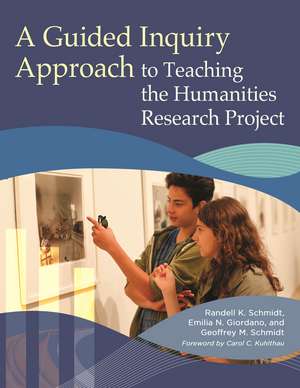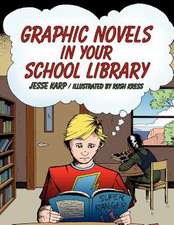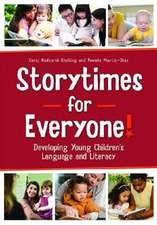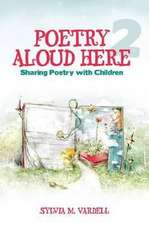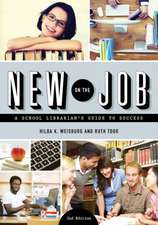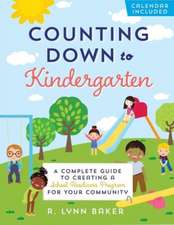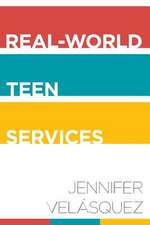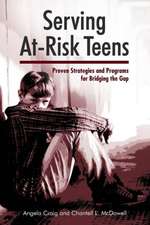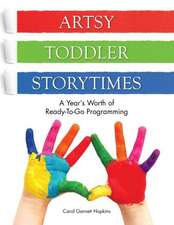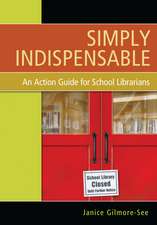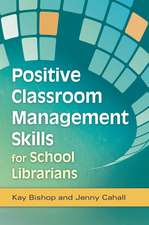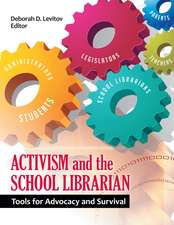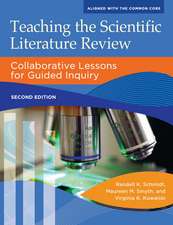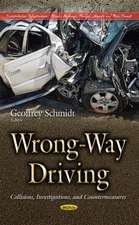A Guided Inquiry Approach to Teaching the Humanities Research Project: Libraries Unlimited Guided Inquiry
Autor Randell K. Schmidt Cuvânt înainte de Carol C. Kuhlthau Autor Emilia N. Giordano, Geoffrey M. Schmidten Limba Engleză Paperback – 25 aug 2015 – vârsta până la 17 ani
Preț: 268.78 lei
Preț vechi: 323.98 lei
-17% Nou
Puncte Express: 403
Preț estimativ în valută:
51.44€ • 53.43$ • 42.73£
51.44€ • 53.43$ • 42.73£
Carte tipărită la comandă
Livrare economică 03-17 februarie 25
Preluare comenzi: 021 569.72.76
Specificații
ISBN-13: 9781440834387
ISBN-10: 1440834385
Pagini: 216
Dimensiuni: 216 x 279 x 15 mm
Greutate: 0.61 kg
Editura: Bloomsbury Publishing
Colecția Libraries Unlimited
Seria Libraries Unlimited Guided Inquiry
Locul publicării:New York, United States
ISBN-10: 1440834385
Pagini: 216
Dimensiuni: 216 x 279 x 15 mm
Greutate: 0.61 kg
Editura: Bloomsbury Publishing
Colecția Libraries Unlimited
Seria Libraries Unlimited Guided Inquiry
Locul publicării:New York, United States
Caracteristici
Explains methods that will enable students to learn how to interrogate drama, photos, art, artifacts, garments, music, political cartoons, speech, fiction, and nonfiction
Notă biografică
Randell K. Schmidt is head librarian at Gill St. Bernard's School in Gladstone, NJ.Emilia N. Giordano is assistant librarian at Gill St. Bernard's School in Gladstone, NJ.Geoffrey M. Schmidt is director of curriculum and instruction at Phoenix Charter School in Springfield, MA.
Cuprins
CONTENTSForeword by Carol KuhlthauAcknowledgmentsPrefacePART I. TEACHER'S PRACTICUMChapter 1: The Traditional Humanities Research PaperChapter 2: The Rise of the Research Question and the Decline of the ThesisChapter 3: The Information Search Process, Guided Inquiry, and the WorkshopsChapter 4: Interrogation of Sources and the Development of a Researcher's Ideas by Directly Questioning the Materials Chapter 5: Media Literacy and the Role of Social Media Chapter 6: Metacognition, Assessment and Latitude: Measuring Growth PART II. STUDENT WORKSHOPSPrelude to a Research ProjectResearch in the Initiation Stage of the Information Search ProcessWorkshop 1: What Are the Humanities and Why Study Them?Workshop 2: The AssignmentWorkshop 3: Encouraging a Variety of Sources and FormatsWorkshop 4: Hunting for Information and Browsing for IdeasResearch in the Selection Stage of the Information Search ProcessWorkshop 5: Coming Up with a Topic and Beginning to Ask a QuestionWorkshop 6: What Is Culture and What Is Cultural Criticism?Workshop 7: Research in the Ubiquitous Media Environment Workshop 8: Searching for Humanities Sources Workshop 9: The Research Question Workshop 10: Responsibility to Academic Honesty and the Problem with Plagiarism Workshop 11: MLA Style and Formatting Paper Workshop 12: Taking Notes and Keeping Track of InformationResearch in the Formulation Stage of the Information Search ProcessWorkshop 13: Interrogating the Sources Workshop 14: Further Developing the Research Question into a Thesis: Using Ideas Uncovered While Interrogating the Sources Workshop 15: How to Organize Your Borrowed Information Into an OutlineWorkshop 16: Filling the Research Holes Research in the Presentation Stage of the Information Search ProcessWorkshop 17: Writing the PaperWorkshop 18: Writing a Conclusion and Creating a "Cover Page"Workshop 19: Preparing to Peer Edit the Draft Research in the Assessment Stage of the Information Search ProcessWorkshop 20: Protocols for Turning in the Research Paper and Learning PortfolioAppendix A: Plan for Professional Development Workshop on the Guided Inquiry Approach to Teaching the Humanities Research ProjectAppendix B: SLIM Packet MaterialsAppendix C: Evaluation Samples and RubricReferencesIndex
Recenzii
It could be useful for those of you working closely with first-year composition instructors. Hopefully more high school students will experience these types of projects and come to college ready to push even further.
[C]learly explained. Emphasis is placed on the collaboration of students, teachers, and school librarians; and on the role of the school library as the 'hub of an information network.' This is a valuable tool for preparing high school students for research projects in high school and college.
[C]learly explained. Emphasis is placed on the collaboration of students, teachers, and school librarians; and on the role of the school library as the 'hub of an information network.' This is a valuable tool for preparing high school students for research projects in high school and college.
